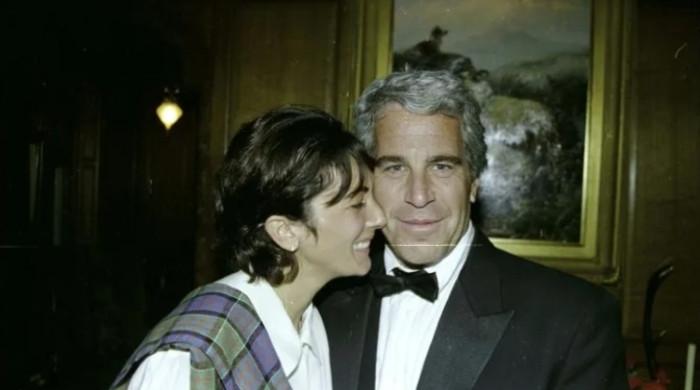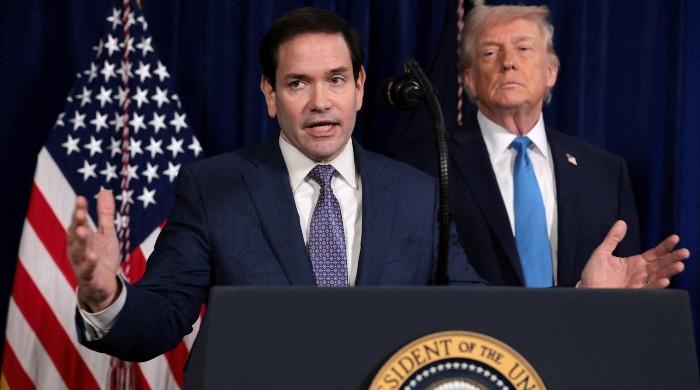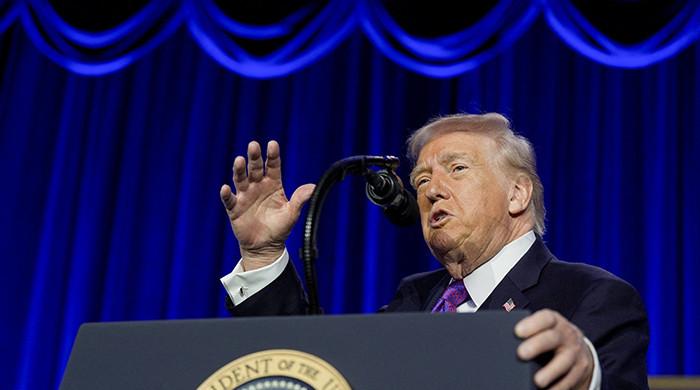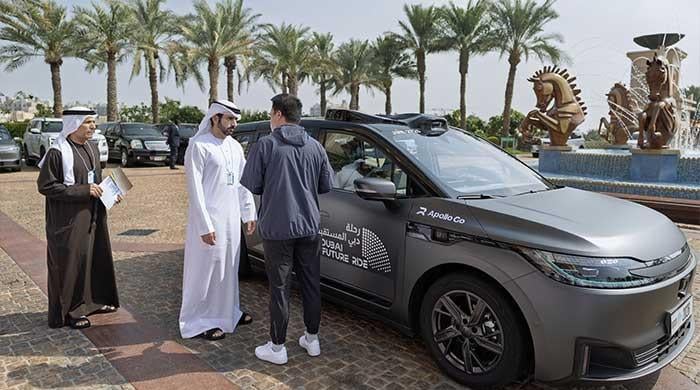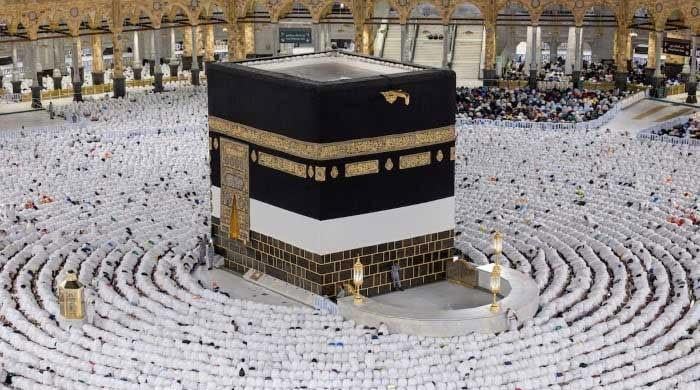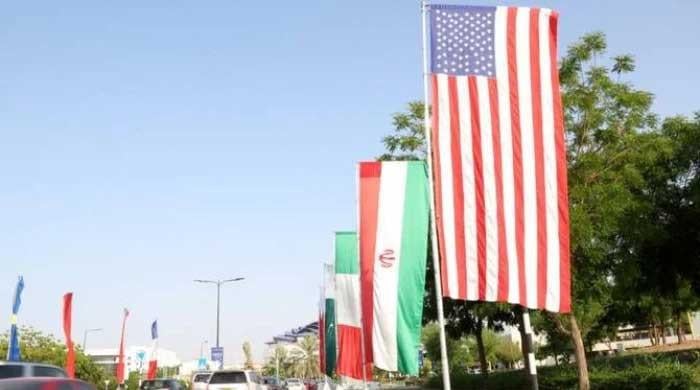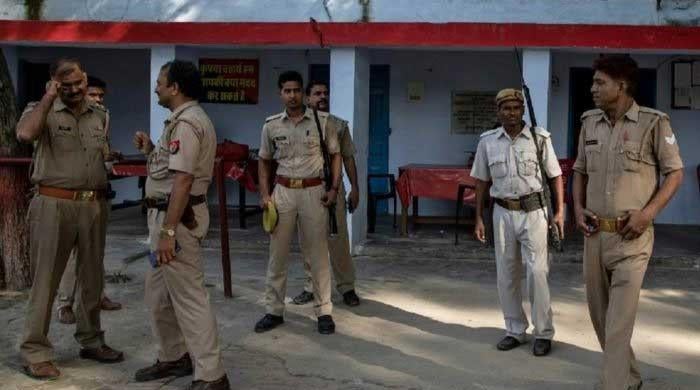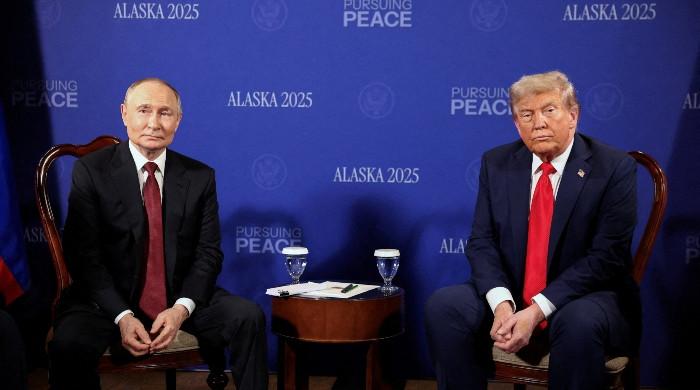Is Russia's Putin on the right track?
Putin, 71, has already served for almost 21 years as prime minister or president and there are indications that he has awarded that role to himself for life
December 19, 2023
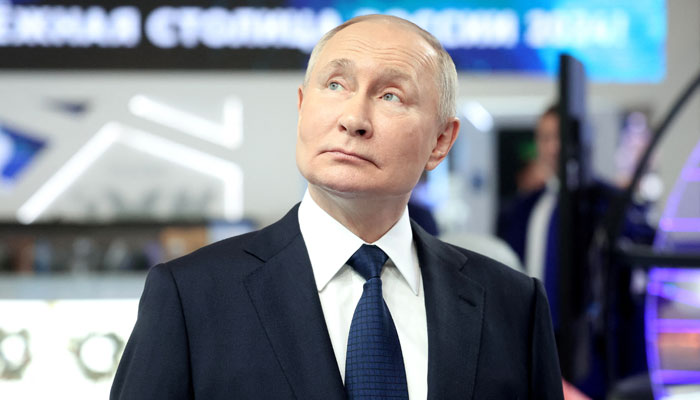
The Russian President has awarded himself full marks by declaring that (Mr Putin,) ‘You are on the right track, Comrades’.
However, by watching his annual press conference which was over four hours long, one can easily conclude that this bold statement or self-praise is a bit of an exaggeration.
It is not because someone asked him to pity pensioners, lamented about the skyrocketing prices of eggs and chickens or conscripted Russian volunteers (fighting in Ukraine) complaint for not getting equal benefits.
Mostly, it’s because no genuine criticism is splashed on screens. A few comments appeared, like ‘Could you tell me how to move to the Russia that we see on TV here?’ But they were not put to "Mr Perfect" in the choreographed event shown live, all across Russia.
Otherwise, any citizen of a democratic country could question, ‘Is he the only Russian leader on the right track’? Or, there are others as well, who should be given an equal opportunity to contest as president.
I will discuss the possible implications of such a scenario later. First, let’s have a look at the content of the annual press conference.
Well, as usual, he remained cool and calm. To every suggestion, he expressed willingness to go the extra mile to address grievances. At times, he even regretted and apologised for not meeting expectations.
President Putin also admitted that if he were to warn himself, he would caution ‘against naivety and excessive trust in our so-called partners’. However, he didn’t mention who broke his trust most or didn’t meet his expectations.
Before the Ukraine war, Moscow had very good relations with Berlin. Did President Putin expect Chancellor Olaf Scholz to stop buying cheap Russian gas and opt for the United States by paying ‘30%’ more to get the same product?
Did he expect Poland would ‘shut down the Yamal-Europe pipeline? Or ‘Americans or someone else at their instigation’ will ‘blow up the Nord Stream 1 and part of Nord Stream 2 pipelines?'
It’s also hard to believe that he could expect a day when he would be seeking a meeting with his Turkish counterpart Recep Tayyip Erdogan and the latter would have no time for that.
In his own words, ‘it didn’t work out on account of President Erdogan’s busy schedule. I was prepared to take a flight to Türkiye, and I told him so, but it failed to transpire because of his busy schedule.
Leave Politics aside. Did President Putin expect that the ‘International Olympic Committee would politicise sport’ by weighing in on Russian athletes’ participation in the Paris Games?
In his own words, ‘they distort the original idea of Pierre de Coubertin- sport should be outside of politics.’
Yet, his excessive trust in partnership with China must be lauded.
At a time, when the West led by the United States is imposing biting sanctions on Moscow, President Putin has almost successfully achieved a bilateral trade target of $200 billion with China.
As he revealed: ‘Last year, we achieved a 31 per cent increase in trade, and we will see a 30 per cent increase this year.’
Thanks to NATO activity in Asia, Russia and China are increasingly coming on the same page against the Western world. Though, China is not directly providing weapons to Russia against Ukraine NATO activity in Asia has the potential to form a military alliance.
As President Putin hinted: ‘We are closely monitoring their actions and will be sure to respond together, effectively and promptly. No one should doubt this.’
In this annual event, only a couple of foreign journalists were allowed to ask questions. Hence, they couldn’t make much headlines, especially about the upcoming presidential elections.
To their displeasure, the host Yekaterina posed a friendly question, ‘Last week you announced your decision to run for president. In this regard, what goals do you consider the most important, at home and abroad?
Putin, 71, has already served for almost 21 years as prime minister or president. And there are indications that he has awarded that role to himself for life.
Pakistanis who are accustomed to ‘Meray Hum Watano’ can fully understand the answer given by President Putin as he said, ‘For a country like Russia, existence, mere existence, is impossible without sovereignty…..Therefore, our main objective is to strengthen sovereignty.’
Though it seems strange, the West should thank Vladimir Putin for his willingness to continue as President.
Otherwise, only God knows how will the hawkish Deputy Chairman of the Security Council of the Russian Federation act against the West, if he contests and wins the presidency.
Dimitry Medvedev has recently gone to the extreme of threatening NATO with an atomic bomb. Medvedev had bluntly said that, ‘There would simply be no other option. So, our enemies should pray for our warriors’ (success in Ukraine). They are making sure that a global nuclear fire is not ignited.’
While watching the press conference, I was wondering if a question will be asked about the threats Artificial Intelligence poses to the world. After almost three hours, eight-year-old Arina Simonova and an AI-generated video of President Putin introducing himself as a student of St Petersburg quench my desire.
Brushing aside the possibility of having a body double, President Putin stressed that Russia should become a leader in the field of both artificial intelligence and superintelligence (that has feelings).
Yet, he remarked that ‘Back in the day when nuclear energy was transformed into a nuclear bomb and people realised that those possessing this weapon are facing growing threats, people started to negotiate. It will probably be the same with AI.’
In this four-hour and three minutes long press conference, President Putin also talked about how as a child he wanted to be a pilot and then followed his dream to be an intelligence officer. And how his mode plays a role in selecting a salad.
He spoke in favour of large families but didn’t talk about his own except, ‘My older brother lies in a mass grave at Piskarevskoye Memorial Cemetery in St Petersburg.’
However, it was pleasant to know that despite being busy leading a war, he enjoys reading Lermontov, the great Russian romantic writer and poet.
Long before the press conference came to an end, President Putin also mentioned a quotation attributed to Otto von Bismarck, the first chancellor of the German Empire.
Putin quoted Bismarck as saying that, ‘wars are not won by general, but by schoolteachers and parish priests.’
Yes, Bismarck said that. But, according to rf.gk.ru., the real credit should be given to geographer and anthropologist Oskar Pesschel from Leipzig.
In July 1866, after the victory at Sadovaya, the professor wrote in the newspaper Zaqranitsa that, ‘Public education plays a decisive role in the war… when the Prussians beat the Austrians, then it was the victory of the Prussian teacher over the Austrian school teacher.’
Now, the world is waiting to see who wins the Ukraine war and if Mr Putin is really on the right track.
However, writing this piece in mid. December reminds me of the 1971 war that we waged against ourselves and India.
The troubling question is if the ‘wars are not won by general, but by school teachers’ then why are we making sure that obscurantism and conventionalism prevail over modernism?




